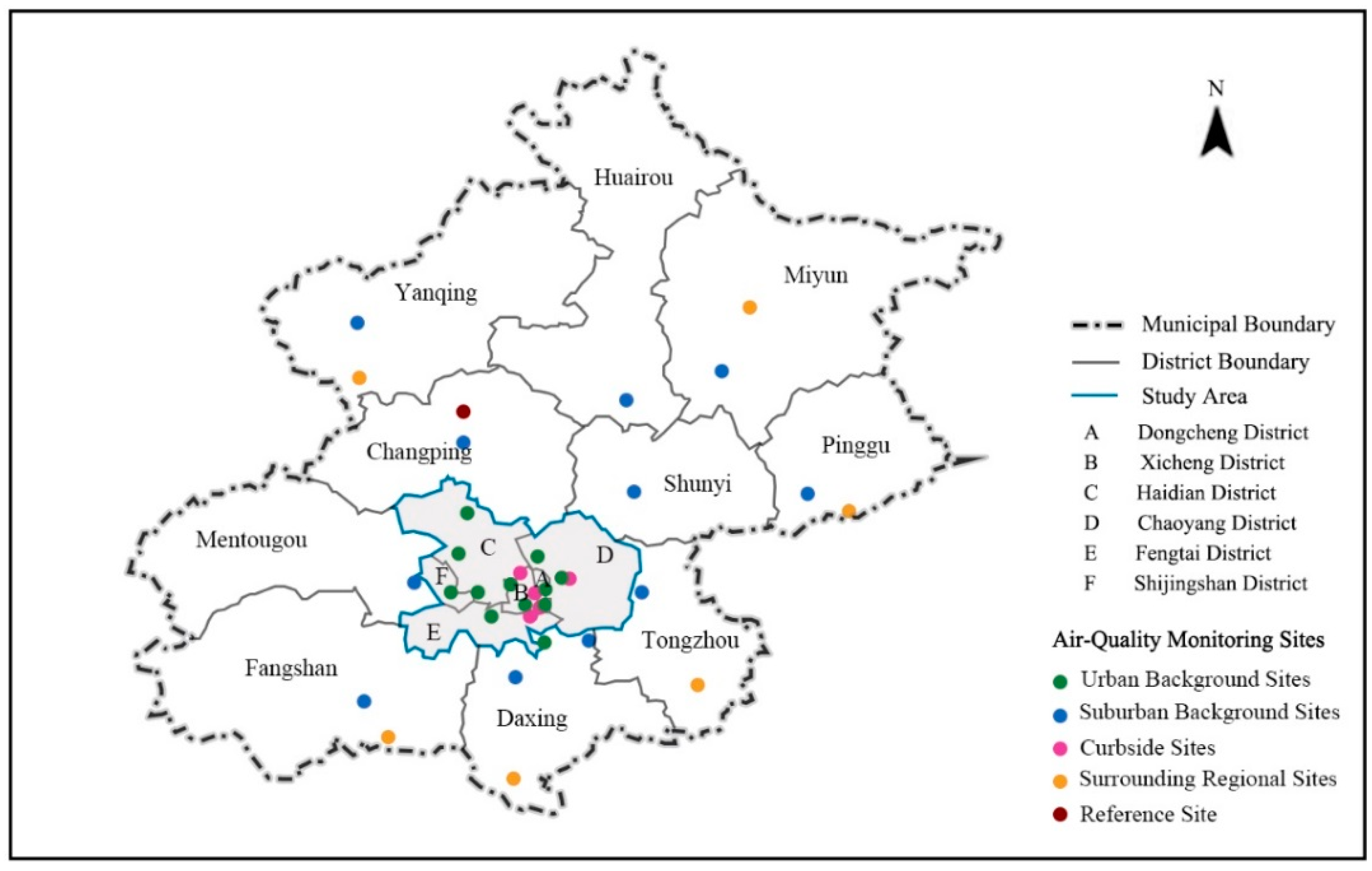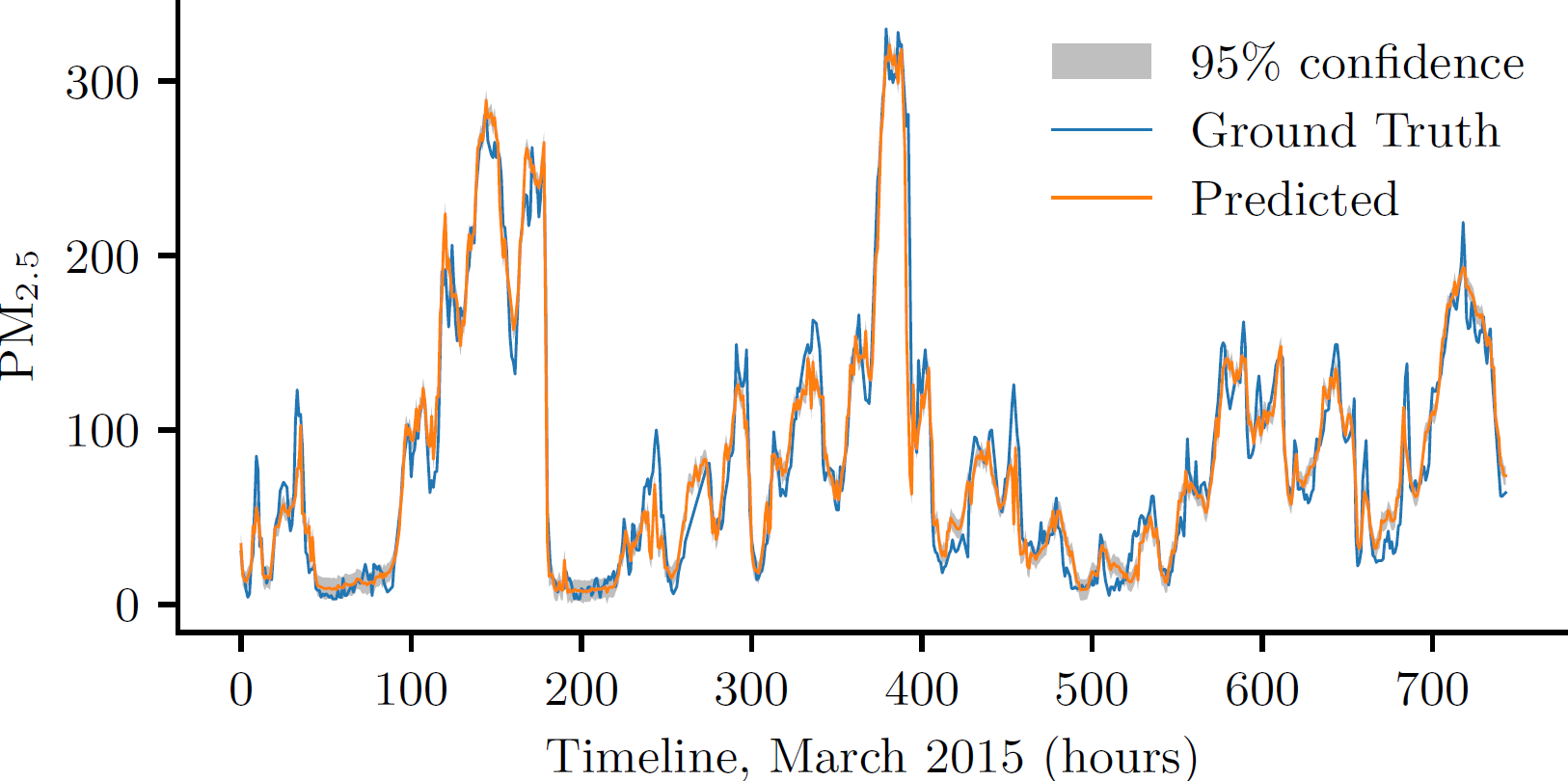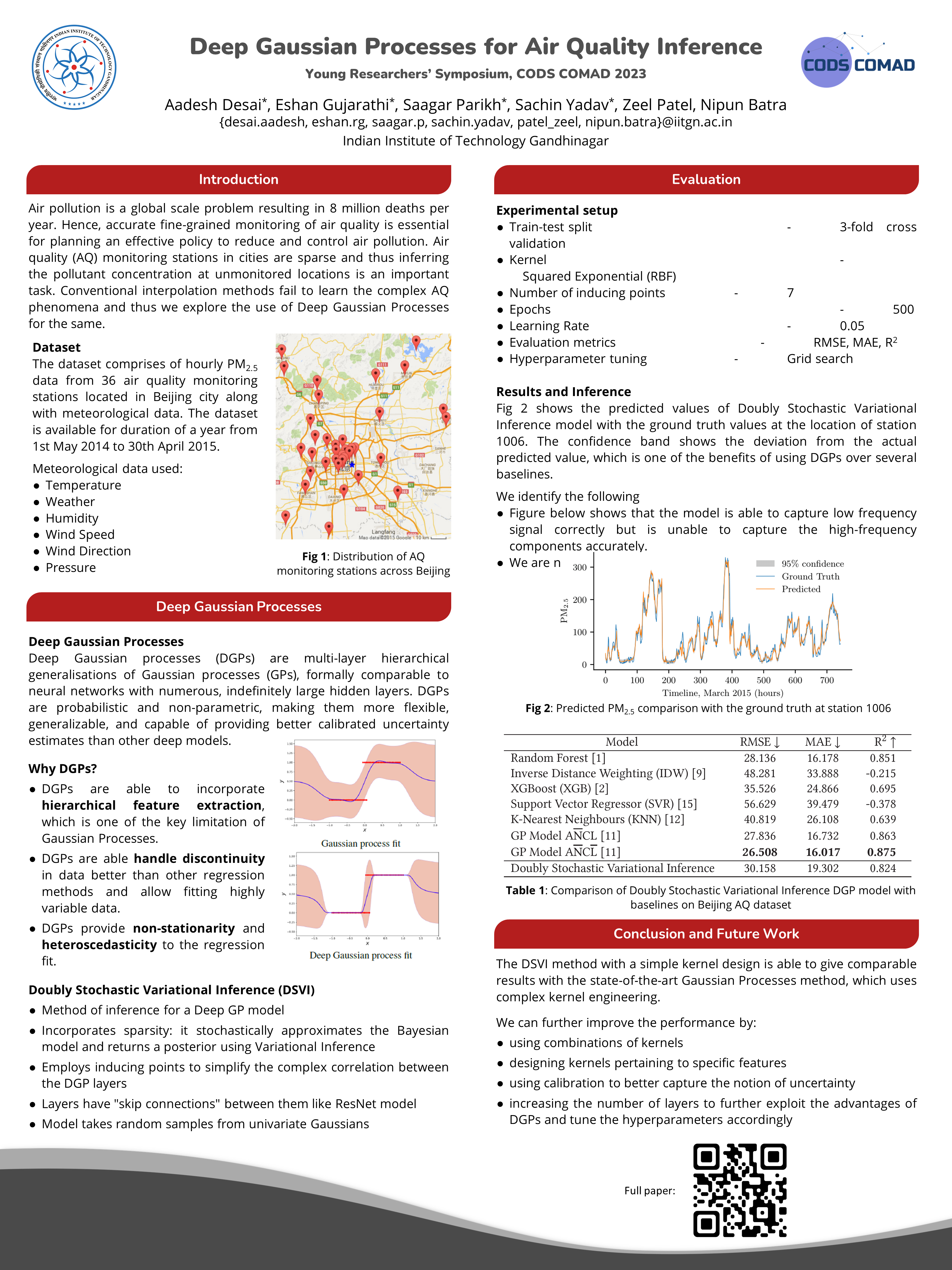Deep Gaussian Processes for Air Quality Inference
- Investigated the current state-of-the-art Gaussian Processes model and assessed the need for the inference of sparse air quality monitoring stations at the unmonitored locations in the Beijing spatio-temporal air quality dataset.
- Achieved comparable results using Deep Gaussian Processes with a simple kernel and Deep Kernel Learning methods to capture domain knowledge by extracting hierarchical features.
- Extended abstract published at YRS, CODS-COMAD 2023
Quick Links:
Data

Distribution of air quality stations in Beijing
Results

Predicted PM2.5 comparison with the ground truth values for DSVI model at station 1006
Poster
